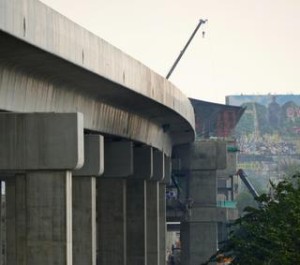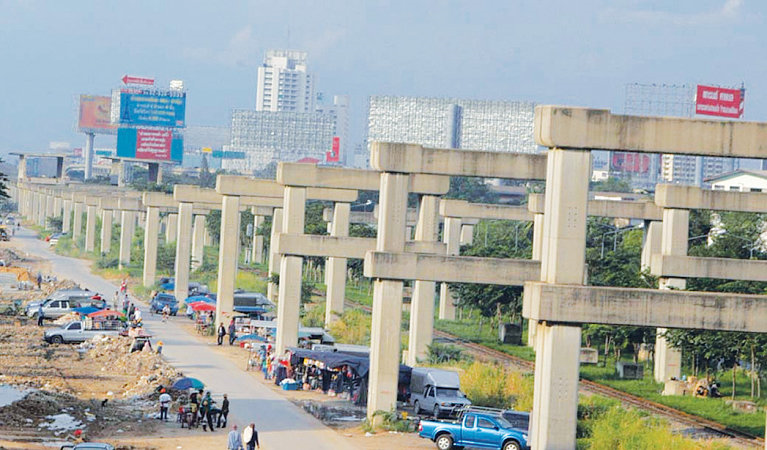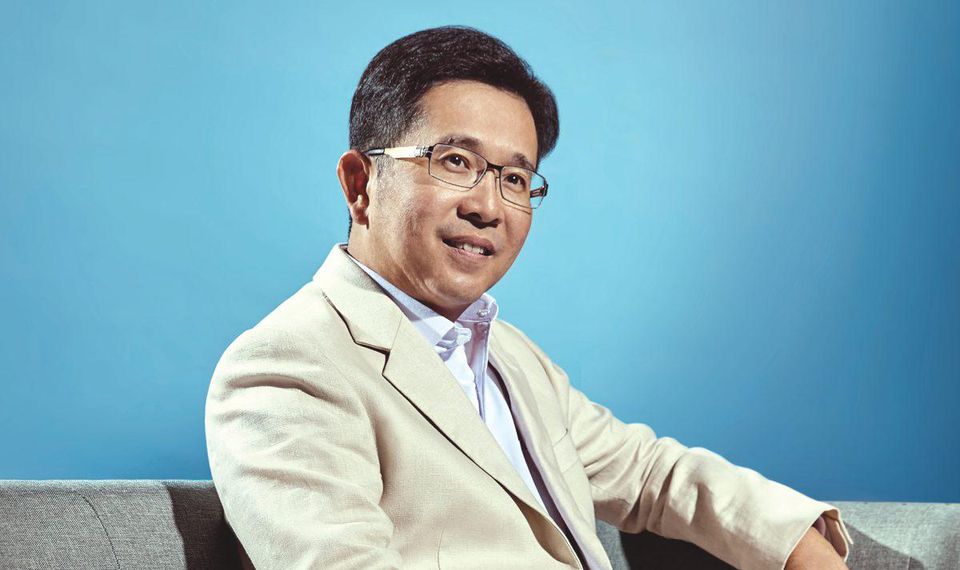
Thailand looks to drastically expand railways, highways and other core infrastructure in the coming years, aiming to make itself more appealing to investors by lowering logistics costs.
The government plans to spend around 1.8 trillion baht ($50.8 billion) on 20 major infrastructure projects by 2022. Bidding will be completed by the end of 2017, with construction to begin soon after.
Poor infrastructure is a main factor impeding Thailand’s economic development, Transport Minister Arkhom Termpittayapaisith told The Nikkei. Upgrades are thus critical to improving the country’s international competitiveness.
Working on the railroad
Railway projects form the core of the action plan, accounting for 14 of the projects planned. A 670km high-speed route between Bangkok and Chiang Mai, assumed to employ Japanese bullet train technology, is the priciest of the bunch at around 450 billion baht. Arkhom said he would like to see construction begin in 2018.
Another 400 billion baht is allocated for five urban railway projects in Bangkok, aimed at alleviating chronic heavy road traffic. Trains now operate along 85km of track in the city, on four underground and elevated lines. The planned extensions and new lines will bring that total to around 200km.
The construction of two other rail lines — one between Bangkok and the resort area of Hua Hin, the other between the capital and the industrial city of Rayong — will be contracted out to the private sector in order to lighten the plan’s overall fiscal burden. The Charoen Pokphand group, a major Thai conglomerate, has expressed interest in the Rayong line, while the TCC group, parent of Thai Beverage, is eyeing the Hua Hin route.
Doing what’s doable
This is not Thailand’s first stab at an infrastructure overhaul. A plan for some 2 trillion baht in investment was drawn up under the now-defunct government of Yingluck Shinawatra. Yet political turmoil and a shortage of funds derailed many of the projects. The current plan excludes projects that could be tough to bring to fruition, Arkhom said, hinting that cabinet approval, the bidding process and other formalities should go smoothly.
Two highways are also included in the action plan. So is terminal maintenance at the port of Laem Chabang, a major center of international trade. Funds will go toward expanding the Bangkok-area Suvarnabhumi Airport as well.
Setting the plan in motion soon could be aimed at burnishing the legacy of Thailand’s military junta. The regime has around a year and a half left in power under its own road map for a return to civilian rule.
Thailand ranked 30th on Swiss business school IMD’s World Competitiveness Scoreboard in 2015, down from 29th in 2014. It fell two notches to No. 30 in basic infrastructure such as transportation networks, making the need for an upgrade all the more apparent.
Source: http://asia.nikkei.com/Politics-Economy/Policy-Politics/Thailand-targets-competitive-infrastructure-with-50bn-plan


